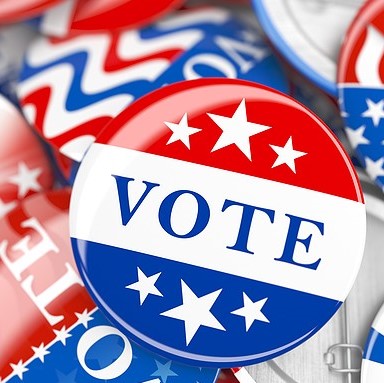On September 6, Massachusetts voters cast their ballots in the Democratic and Republican Primary Elections. The winners of these races will face off in the General Election on November 8. Here are five takeaways from the Massachusetts Primary Election:

1. History in the making
Should Maura Healey (D-Boston) win the General Election in November, she will be the first out member of the LGBTQ+ community to be elected Governor of Massachusetts. Healey would also be one of the first openly lesbian governors in American history, along with Tina Kotek, the Democratic candidate for governor in Oregon. She would also be the first woman elected Governor of Massachusetts, following Jane Swift’s promotion to the role from Lieutenant Governor when then-Governor Paul Cellucci became U.S. Ambassador to Canada. Before all that history can be made, Healey must defeat Trump-endorsed former state Representative Geoff Diehl (R-Whitman) who won the Republican gubernatorial primary.
Together, Healey and Mayor of Salem Kim Driscoll, who won the Democratic primary for Lieutenant Governor, make state history as the first time two women have been nominated by a major party for governor and lieutenant governor.
Andrea Campbell (D-Boston) is the first Black woman to secure the Democratic nomination for Attorney General. In fact, according to her campaign, Campbell is the first Black woman elected as a nominee for statewide office in Massachusetts. Four years ago, Campbell made history as the first Black woman to hold the role of Boston City Council President.
State House News Service has reported a number of newly elected candidates expected to join the House of Representatives and Senate are people of color as they face no Republican candidates in the General Election. Liz Miranda of Boston and Pavel Payano of Lawrence will expand the representation of Black and Latino policymakers when they join the state Senate. Those expected to join the House of Representatives include Latinx candidates Estela Reyes of Lawrence, Manny Cruz of Salem, and Sam Montaño of Boston. Additionally, Priscila Sousa of Framingham and Rita Mendes of Brockton are Brazilian immigrants who won their primary elections.
2. Money talks, but it doesn’t vote
Self-funded candidates ran and spent a lot, but they didn’t win. Take it from Democrat Shannon Liss-Riordan, who loaned at least $9.3 million to her campaign for Attorney General and secured 34% of the vote. Chris Doughty, who lost the Republican gubernatorial primary, donated over $2.2 million to his own campaign.
In the Democratic primary for Lieutenant Governor, state Senator Eric Lesser (D-Longmeadow) spent $1.5 million in fundraised dollars this year, more than both of his competitors combined. Still, Kim Driscoll (D-Salem) won the Democratic nomination for Governor with 47 percent of the vote.
According to records from OCPF, the state’s campaign finance office, Healey heads into the General Election with $4.7 million cash on hand. Meanwhile, Republican nominee Geoff Diehl reports less than $17,000 cash on hand. For comparison, Governor Charlie Baker entered this leg of the campaign in 2018 with more than $6.3 million in his campaign account.
3. Survey says: undecided
Many of the polls in the final weeks and even in the final days leading up to the election showed a large share of voters were undecided. A survey of Democratic primary voters conducted by the UMass Lowell Center for Public Opinion in the last weeks of August showed 37 percent were undecided in the Democratic primary for auditor between Chris Dempsey (D-Brookline) and Diana DiZoglio (D-Methuen) – a primary ultimately won by DiZoglio.
A poll conducted in early September had Andrea Campbell leading with 38%, Shannon Liss-Riordan at 30%, and a third of voters still undecided. The same poll conducted by Priorities for Progress, which closed just two days before the primary election, showed that more than half, or 52% of voters, were undecided in the Democratic primary for Lieutenant Governor.
4. Incumbency matters
When it comes to electing policymakers in the Massachusetts Legislature, incumbency matters. Of the 35 state Senators running for re-election, just five had primary races, which they each won. In the House of Representatives, 17 incumbent legislators faced primary challengers; just one lost (two of these races remain unconfirmed). In all, 30 Senators and 124 Representatives in the 200-member Legislature faced no primary challenger.
In races for constitutional office, the power of incumbency is also regularly on display. Treasurer & Receiver-General Deb Goldberg is expected to be re-elected this year facing no challengers in her own party for the Primary Election nor any Republican challengers in the General Election. On Tuesday, Secretary of State Bill Galvin, who has served in the role since 1995, beat primary challenger Tanisha Sullivan. In the past 28 years, Galvin has faced challengers in just four primary elections, including his first race for the office.
5. Turnout
Historically, turnout is low in primary elections in years when there is not a presidential election. While turnout data has not yet been confirmed, estimates from the Associated Press put turnout around 20 percent.
The last open Massachusetts gubernatorial race, where the Governor was not running for re-election was in 2014. In the primary election that year, with three Democratic candidates and two Republican candidates for governor, statewide turnout was just under 17 percent. In 2020, voter turnout in the state Primary Election was 37 percent, but turnout more than doubled in the General Election at 76 percent.
Voting resources:
- Election Day: Tuesday, November 8.
- Early voting will run from Saturday, October 22 through Friday, November 4.
- Register to vote. You must register by October 29 in order to vote in the General Election on November 8.
- Check if you’re already registered to vote
- Find your polling place
- Update your voting address
- Vote by mail
About

Maggie Randall
Manager of Public Policy and Advocacy
As Manager of Public Policy and Advocacy, Maggie focuses on advancing local, state, and federal policies to support and grow the life sciences industry in Massachusetts. Maggie works with representatives from MassBio member companies to lead and facilitate policy working groups and position-specific roundtables.
Prior to joining MassBio in 2021, Maggie spent several years in the Massachusetts Senate, recently serving as Chief of Staff and working on legislation related to transportation, housing, and criminal justice reform. Previously, Maggie worked in Massachusetts Senate President’s Office.
Maggie holds a Master of Art in Applied Politics and a Bachelor of Science in Law and Public Policy from Suffolk University. Maggie’s graduate thesis examined voter turnout and voter accessibility through state and federal policies.
Contact Maggie to get involved with MassBio’s Roundtable and Working Groups.